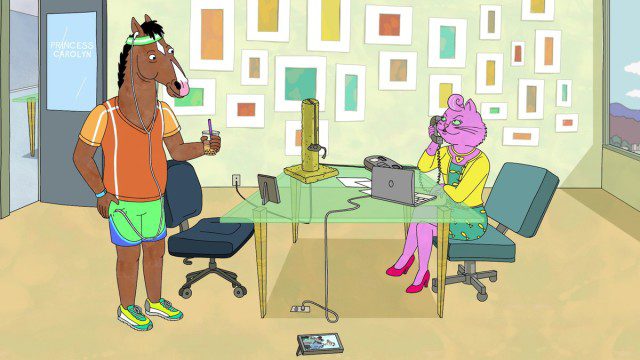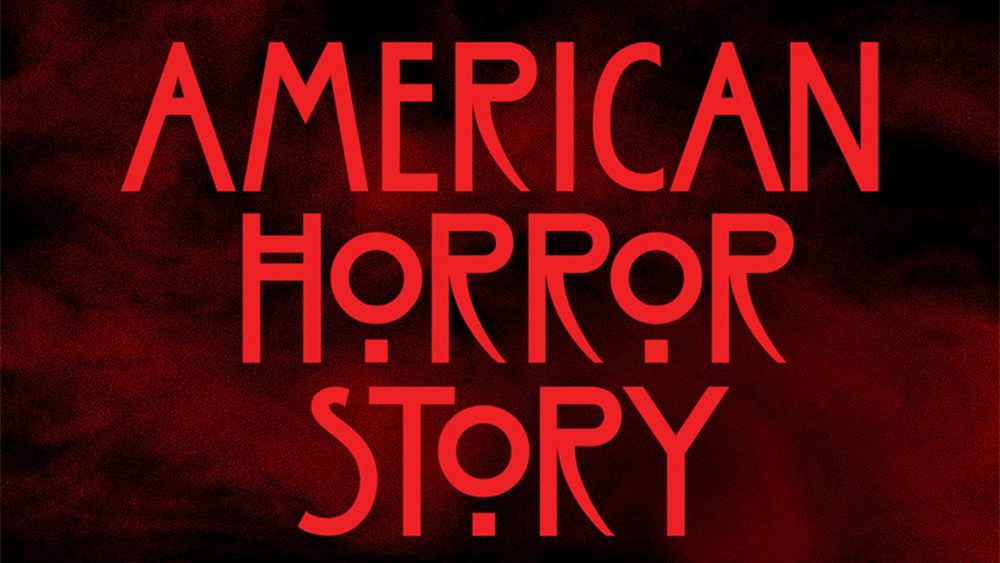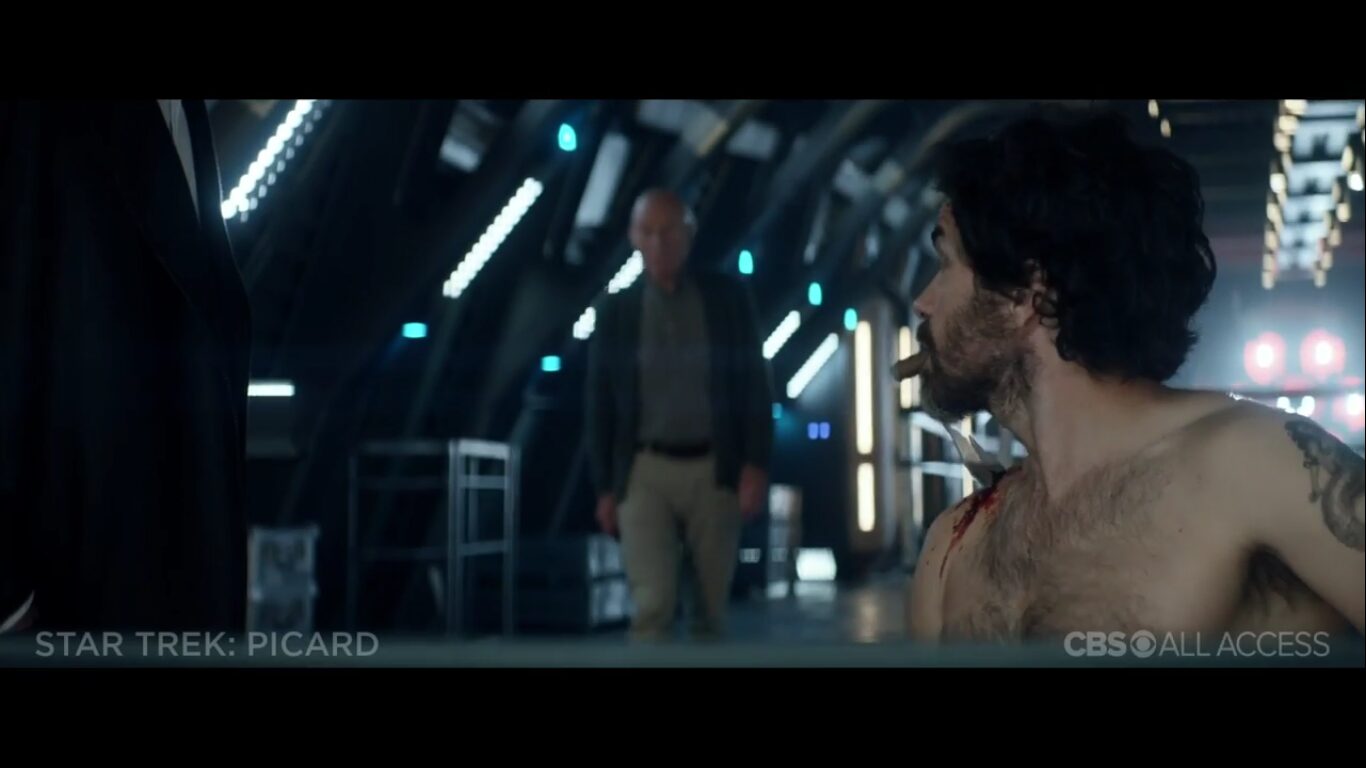BoJack Horseman is Netflix’s best original show. This is better than House of Cards, better than Orange Is the New Black, better even than Daredevil, which until last Friday was the high-water mark for the streaming service’s original programming. BoJack creator Raphael Bob-Waksberg has pared this show down to its essence and found exactly what works about it, and the result is nothing less than revelatory television. At the end of the first season (my review), I praised the show for its surreal ingenuity but dinged it for some tonal whiplash. Now I can make no such complaint. Bob-Waksberg (I am dying to know the history behind that name) has honed his vision, and turned BoJack Horseman into the best contemporary show about clinical depression, existential crises, relationship woes, and wealthy ennui. It’s also fucking hilarious. Make no mistake, BoJack will rip your heart out and show it to you in a way not seen since Futurama‘s notorious “Jurassic Bark,” but this second season had me literally in tears from laughter.
Continuity has always been one of BoJack Horseman‘s strong suits (notice how everyone still says “Hollywoo”) and this is no exception. BoJack is playing his dream role, Secretariat, in an increasingly surreal production that features the titular horse’s defiance of Richard Nixon and, ultimately, his suicide. (It’s narratives like that that show how deftly BoJack anthropormophizes its animal characters; why wouldn’t famous race horse Secretariat be a living, damaged person like anyone else?) While BoJack can’t seem to free himself from the shackles of sitcom-style acting (he spends all day exclaiming “What are you doing here!” in increasingly exaggerated fashion), everyone else has it arguably worse.
Diane, who wrote the book the film is based on, is reduced to warning people about the presence of a cable. Princess Carolyn is under appreciated at her job, and unsure in her relationship with Vincent Adultman, who, as you’ll recall, is three children stacked on top of one another. Todd is as aimless as ever, but thankfully given more direction this season; he’s no longer relegated to the role of comic relief, which is itself a relief, because Aaron Paul’s performance has never been more vulnerable, funny, or nakedly emotional. He’d be the MVP of the season, but frankly he’s tied with everyone else. (Paul F. Tompkins as Mr. Peanutbutter gets some heavy, emotional dialogue, which is a great development; last season his eternal optimism made his character a little one-note.)
Every single episode of this season is stellar, and often for different reasons. One of my favorites is “After the Party,” told in three separate vignettes; one sees the end of Carolyn and Vincent’s relationship, one sees a strain put on BoJack’s relationship with Wanda (an owl voiced by Lisa Kudrow), and the best is a searing examination of Diane and Mr. Peanutbutter. She wants to do something with her life, and Mr. Peanutbutter tells her that he’s fine with the exact opposite (Tompkins’ delivery here is heartbreakingly simple). He admits that when Diane is gone, he just waits on the couch for her to come back. “I’m an old dog,” he laments, and your tear ducts go into overdrive. When, at the end of a long argument, Diane sighs “I’m not happy,” there’s a palpable sense of relief. Not because we want these characters to break up – we don’t – but because we’ve seen TV before and we know how these things end. Here’s the thing, though: they don’t break up. Diane, Mr. Peanutbutter, and BoJack Horseman, are all more complicated than that; life is messy as shit, and it’s almost impossible to get through alone.
But all that being said, it never feels like Diane is settling (Alison Brie does a reliably amazing job, as both Diane and Vincent Adultman). Love, in all its complications and permutations, is a running theme throughout BoJack‘s second season. Nothing is easy, this show wants to tell us, and throughout the season multiple characters repeat the phrase “I didn’t know where else to go.” Furthermore, BoJack has wisely abandoned any romantic tension between BoJack and Diane, and allowed their relationship to bloom into a genuinely affecting friendship. This happens even as BoJack’s friendship with Todd crumbles, and BoJack has to live with the knowledge that his former friend Herb Kazzaz (Stanley Tucci, brilliant) died thinking that BoJack was a piece of shit. There are some seriously complicated emotions at play here, made even more obfuscated by the fact that half the cast is talking animals.
This all sounds very serious, and it can be (it doesn’t hurt that show has the most melancholy end credits song I’ve ever heard). But that doesn’t mean that BoJack Horseman has abandoned its more surreal inclinations. Some of this season’s best plots are its weirdest – for instance, “Chickens,” wherein Todd befriends a runaway chicken whom he names Becca. To an LAPD officer (named, naturally, Sgt. Meow Meow Fuzzyface), he tries to pass Becca off as his wife, interpreting everything she says as every possible word that rimes with bawk. Her favorite baroque composer is Bach, and when asked where she’d like to sit in the car, naturally she chooses the back. (This episode, in case you can’t tell, is a brilliant showcase for Aaron Paul.) Todd also opens his own mock version of Disneyland, the scenery of which is surreal, disturbing, and hilarious in equal measure. To up the weirdness quotient, Carolyn recruits the not actually dead J.D. Salinger to create a TV show, and what he comes up with is an asinine celebrity quiz show called Hollwoo Celebrities – What Do They Know? Do They Know Things?? Let’s Find Out!!
Simply put, there’s no other show on the air like this right now. BoJack Horseman plumbs the depths of interpersonal relationships, and as our hero travels from L.A. to New Mexico, disastrously seeking to reconnect with his one-time love Charlotte, it makes him, and us, take a hard look in the mirror and ask what it takes to be a good person. (This happens in “Escape from L.A.,” which right now is the most gut-wrenching episode of TV I’ve seen all year.) These are heady, philosophical questions, and this is a show about a talking horse. Do you know how easy it would have been to coast on that gag and play it for cheap laughs? But Raphael Bob-Waksberg is going so much deeper than that. He’s successfully distilled the formula from season one, and really lit upon the story he wants to tell, as well as the questions he wants to ask.
I tried not to be too hyperbolic in this review. But I don’t think this praise is hyperbole. At the end of the finale, “Out to Sea,” I was in tears, in the best possible way. BoJack Horseman is nothing less than a masterpiece this season, a singular achievement that will be incredibly difficult to follow up.
A Few Thoughts
-
I loved Carolyn’s powerful kiss-off to Rutipaga Rabitowitz: “It’s Princess Carolyn.” Pitch-perfect delivery by Amy Sedaris
-
Back in the ’90s I was in a very famous TV show







